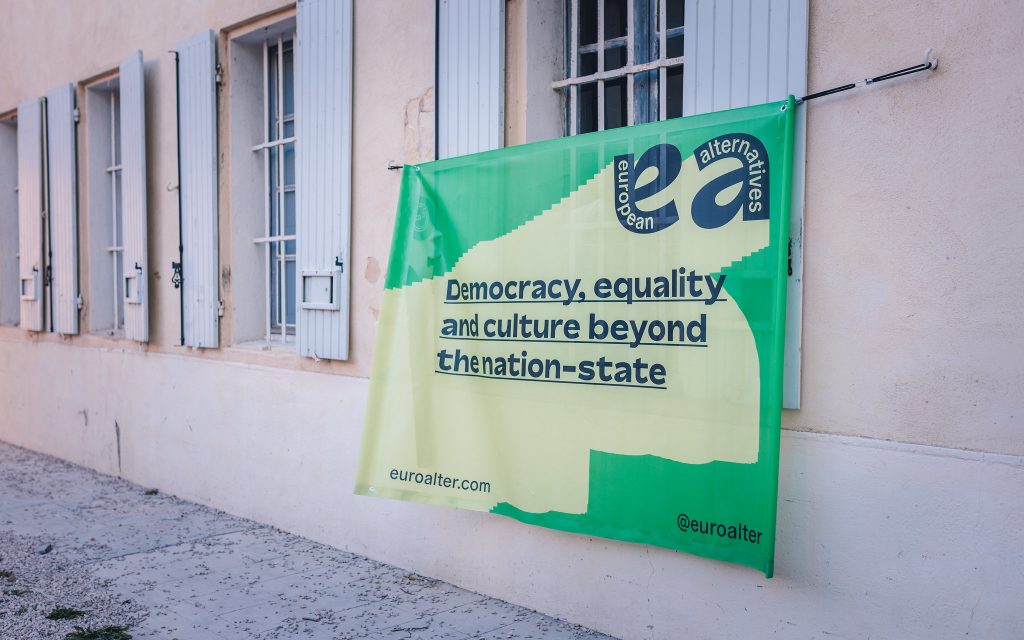Jun 11, 2024
The rise of the far-right is no surprise – getting serious about changing this system must start now
For anyone that has been observing politics in Europe over the past decade, the strong results of the far right in many countries in the European elections should come as no surprise: over that time racist, xenophobic and patriarchal policies have been mainstreamed at the same time as the social needs of increasing parts of the population have been neglected, and power and money concentrated to almost unprecedented extents in small elites. Some of the representatives of these elites are even openly celebrating the results – current Commission President Ursula Von Der Leyen said, ‘we have won the elections, beating both the extreme left and the extreme right’.
The cynical bluff of mainstreaming racist policies whilst pretending to be the only buffer against the far-right is unsustainable, and is already being called out. The masks have fallen, and these European elections must mark the end of this sequence, and the beginning of seriously constructing a new European politics.

For this, a fatal error would be to adopt the same national framing that is currently benefiting the conservative and far-right wing forces. Politics are inescapably transnational, both inside the European Union, where social, climate, migration, health, technological development and monetary policies all have transborder elements to them, and more generally no European country acting alone can bring peaceful resolutions to global crises. Pretending that politics can be purely a national affair can only lead to a politics of resentment, always needing to find a new scapegoat for its inability to act.
Yet our European democracy has not been allowed to catch up with the scale of policies: even the European parliamentary elections remain 27 nationally organized elections, in which citizens vote for national parties for a parliament which itself only has limited political agency and is subordinate to the European Council.
In the immediate term, the legislative elections in France, in which Rassemblement National of Marine Le Pen and Jordan Bardella could easily win a majority and form the new government, are of Europe-wide importance. There must be a left coalition to prevent another country having a far-right government, and parties in this left coalition, like every voter, must acknowledge that they are carrying responsibility for the future of the European Union as well as of France over the next month. The movement must be active and attentive in every part of the French territory, not only calling for a vote against the far right, but proposing a mobilising alternative that will improve people’s lives and renew politics. And this movement will need our strength and our bravery to win. And it will need them now.
European Alternatives will play its part by organizing festivals and gatherings in Seine Saint Denis the weekend of the 29th and 30th of June, and in Lille the weekend of 6th/7th July, as well as leading the next steps in the convergence of movements that happened at the European Common Space of Alternatives in Marseille in April.
Future crucial elections to beat the far-right will come soon after, in Austria and potentially in Germany amongst others. For a sustainable transformation away from this system of constant risk of nationalism, our politics must become locally embedded in the multiplicity of communities across the continent, which have connected problems and struggles but are currently isolated one from another. Translocalism must become the methodology of a new alternative for Europe which renews democracy from the grassroots up and builds a new civic and political infrastructure, at the same time as a profound democratisation of the European Union through radical transparency, electoral reform, citizens assemblies and use of direct democracy. These European elections only mobilised half of the electorate: both a more inspiring politics and more frequent forms of political participation are urgent for the legitimacy of the European institutions.
European Alternatives has been working across the continent for over 15 years, and in that time we have met in so many places the potential actors of a new politics in their great diversity: migrants, minorities, women, LGBTQI communities, workers, artists, activists, young people and old…. This other Europe already exists, but needs to increase its coordination, visibility and impact. We call all movements to our Transeuropa Festival, this year in Venice the 7th – 10th November, as a moment of coming together around a transfeminist and transnational festival to chart the next steps of systems change in Europe.